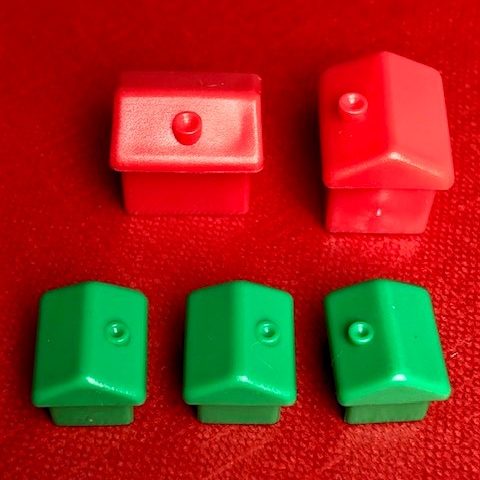
General Court: No monopoly for Monopoly
The General Court of the European Union confirms the cancellation of the word mark Monopoly due to bad faith re-filing.

Judgment of 21 April 2021, T-663/19 Monopoly/EUIPO-Kreativni Dogadai d.o.o.
ow could such a famous trademark as Monopoly become invalid and when is a repeat application for a trademark filed in bad faith?
Facts
On 30 April 2010, Hasbro, Inc. filed an application for the EU word mark Monopoly with the EUIPO, which was registered on 25 March 2011. Hasbro already owns three trademarks registered in 1998, 2009 and 2010 with partly identical goods and services.
In August 2017, pursuant to Article 52(1)(b) of EUTM Regulation No 207/2009 [now Article 59(1)(b) of Regulation 2017/1001] a Croatian applicant filed an application for a declaration of invalidity of the contested mark Monopoly in respect of all the goods and services designated by that mark. It relied on the fact that the repeated application for the word mark Monopoly for identical goods and services constituted an application filed in bad faith for the sole purpose of avoiding the proof of use of the earlier marks, which was due after five years.
The Cancellation Division of EUIPO initially rejected the request, the Second Board of Appeal partially annulled the decision and declared the contested mark invalid for all goods and services identically covered by the earlier mark.
This decision was challenged by the Hasbro company.
Decision
By decision of 21 April 2021, the GC (case number T133/19) confirms the decision of the Board of Appeal and dismisses Hasbro’s action.
The term bad faith, which in the present case is to be understood in terms of trademark law, is not defined in the EUTM Regulation. However, according to settled case-law, the following factors – which are not listed exhaustively – could indicate bad faith:
- If the applicant knows or must know at the time of filing that a third party is using in at least one member state for the same or similar goods or services an identical or similar sign which may be confused with the sign applied for (Sprüngli judgment).
- If the applicant’s intention is to prevent that third party from further use of such sign.
- The degree of legal protection enjoyed by the third party sign and the sign applied for.
The concept of bad faith thus refers to a subjective motive of the trademark applicant, namely a dishonest intention or other unfair motive. It refers to conduct which departs from accepted principles of ethical behaviour or honest practices in industrial and commercial matters (EU:T:2016:396, LUCEO, para. 28).
In the present case, the applicant itself admitted in the proceedings that it had filed the trade mark application in order not to have to prove genuine use in the opposition proceedings, i.e. to be able to avoid the compulsory use of the trade mark right. This was, moreover, a widespread and recognised industry practice.
According to the GC, it is precisely this aim of circumventing the fundamental rules of trade mark law for the protection of the trade mark on the one hand, but also of free economic life on the other, that falls under the facts of bad faith. The trademark proprietor’s monopoly may therefore not extend beyond the grace period for use.
The GC also makes clear that the applicant’s conduct shows its intention to distort and destabilise the system of EU trade mark law.
It does not accept other arguments, neither administrative nor strategic.
Consequences for practice
The Monopoly judgment of the GC contributes decisively to a legally more secure handling of the fact of bad faith in EU trade mark law. The legal provisions on the EU trade mark do not in principle prohibit a repeated application for a trade mark and such an application does not per se constitute bad faith. However, trade mark applicants should exercise caution when applying for an identical trade mark for identical goods and services for the sole purpose of not having to prove their broad list of goods and services beyond the grace period. Even an application with slightly modified goods and services does not change this assessment. However, slight modifications (word/figurative marks) – due to a modernization of the original mark – may make a new application necessary. The accusation of bad faith is then no longer applicable.
Other important judgments on bad faith re-filings:
- EuGH “Chocoladenfabriken Lindt & Sprüngli“ (C-529/07)
- EuG „Pelikan“ (T-136/11)
- EuGH „Sky/SkyKick“ (C-371/18)
Do you have questions about this article?
Contact us

Gracia-Regina Blumenröhr
Legal Counsel